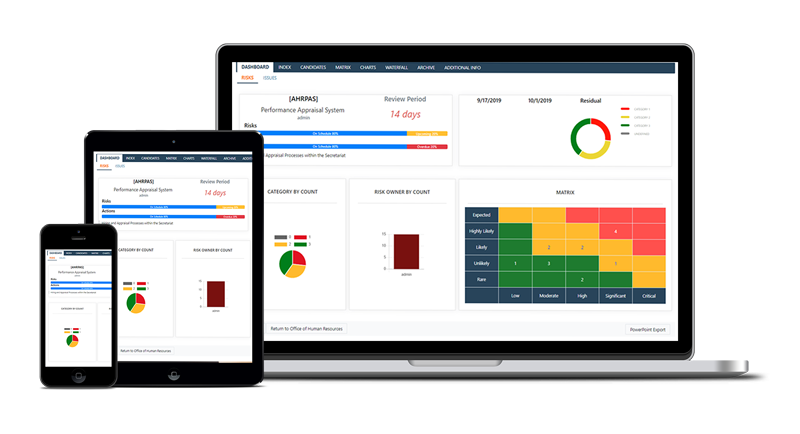In addition to being able to flex their facilitation style to meet the varying challenges of the risk workshop and different risk identification techniques, the risk facilitator also needs to handle the people who participate in the risk workshop.
Unfortunately, it is common to find at least some participants in every risk workshop who are not fully committed to its success, or who are not willing to contribute freely. There are seven types of workshop blockers, and risk facilitators need to know how to handle them appropriately. Here are some suggestions to try:
- Aggressive. These people do not want to be in the workshop, think it is a waste of time, and actively oppose what the facilitator is trying to achieve. They are often loud, argumentative and critical, and their behaviour distracts others from contributing.
Defuse. Give them time to make their point, and do not argue with them, listen patiently, and use conciliatory language. If necessary speak to them outside the meeting during a break, asking for more tolerance, seeking their active support.
- Complainer. Everything is wrong for a complainer, from the room size or temperature to the meeting time and duration, the list of participants, the type of coffee and biscuits, the agenda and scope of the workshop, and so on.
Delay. Listen to their complaints, and acknowledge anything which is valid. Then agree to address concerns outside the meeting. Deal with immediate matters during a break, and take up other issues later
- Know-it-all. Some people delight in expressing their opinion and demonstrating their expert knowledge of a topic, even when they are not real experts. They have strong opinions and voice them confidently. They are the first to answer every question, often dismissing the views of others as uninformed or naïve.
Defer. Recognise valid expertise, and play back their opinion so they know they have been heard and appreciated, then extend on their input if possible, building on it to regain the initiative.
- Agreeable. While agreeable individuals may appear to be the facilitator’s friend, they often fail to share their true opinion for fear of upsetting someone or being criticised. They smile and nod encouragingly, but shy away from disagreeing with others, and are often reluctant to speak first in any debate.
Direct. Beware of allowing them to get away with “being nice”, and challenge them to express their true opinions. Ask them to contribute first from time to time.
- Negative. These people will disagree on principle with others, seeing it as their role to give the opposing viewpoint (even if they don’t believe it). They undermine the facilitator and other participants by casting doubt on the truth or reliability of their inputs, and prevent consensus through constant nay-saying.
Detach. Maintain a degree of neutrality, not allowing them to get you on their side in criticising others. Accept valid alternative viewpoints, but aim for realistic compromise. Depersonalise their opposition, make it about the process or the principle but not about the person.
- Staller. For the staller, there is never enough information to make a firm judgement or to give a clear opinion. They wish to defer everything until later, when more data is available or more progress has been made.
Delegate. Explore reasons why they are reluctant to offer an opinion on the available data, find out exactly what additional information they require, and give them an action to bring it to the next meeting. Encourage them to give an interim assessment on the current data.
- Silent. Some people just refuse to contribute. They sit quietly but will not speak up to give their opinion, even when challenged or specifically invited to do so.
Decline. Refuse to accept non-participation or withdrawal. Ask direct open questions, then wait for an answer, using silence as a motivator. Speak to them privately to encourage participation.
Sadly, we will always encounter people in risk workshops who create difficulties, often not deliberately. By understanding the different types of difficult people and having strategies ready to deal with them, the risk facilitator can ensure that the risk workshop stays on track and achieves its objectives.
For more information visit www.risk-doctor.com






